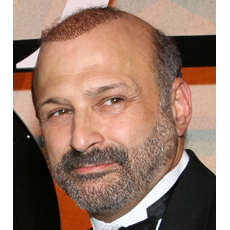May 7, 20121
Sleeping Without The Pills

 At first I was curious why Mary, a lovely lady in her early 60s, had come to see me. She described her problem as “being sleepy all the time.” As an internist practicing addiction medicine for the past 24 years, I have become sensitive to the significance of sleep disturbances and what they might represent (substance abuse) as well as the importance of a good night’s sleep to eliminate anxiety.
At first I was curious why Mary, a lovely lady in her early 60s, had come to see me. She described her problem as “being sleepy all the time.” As an internist practicing addiction medicine for the past 24 years, I have become sensitive to the significance of sleep disturbances and what they might represent (substance abuse) as well as the importance of a good night’s sleep to eliminate anxiety.
After interviewing her, my concern was justified: Mary had addictive disease as well. She was abusing Ambien, a prescription sedative for the short-term treatment of insomnia. She didn’t remember exactly when she first began taking it, but recalls why: her 401k had taken a huge hit at the outset of the Wall Street crisis several years ago. She suspected she had “a problem” when she failed to recall a very long and detailed phone conversation with her sister about their upcoming vacation together.
Unfortunately, Mary’s problem is increasingly common. The incidence of substance abuse is on the rise for men and women over the age of 50. Almost one in every five older Americans uses medications unsafely. Between 1995 and 2002, the number of substance abuse treatment admissions for people 55 and older increased by 32 percent according to the Substance Abuse and Mental Health Services Administration. Those statistics concur with those at Cliffside Malibu Treatment Center.
Typically, older substance abusers aren’t getting their fixes in some dark alley, and their drugs of choice aren’t meth, heroin or other popular “street” drugs. They’re getting high and strung out by visiting their home medicine cabinets where they can find an array of powerful prescription medications, such as opioids for pain (Vicodin, Percocet, OxyContin, Dilaudid, etc.) and central nervous system depressants for anxiety and sleep disorders (Valium, Xanax, Klonipin, Ambien, etc.).
And they’re not alone: more than 12 million people in the United States are abusing prescription drugs, according to a report by the Centers For Disease Control, which is more than the combined number of people abusing cocaine, hallucinogens, inhalants, and heroin. Accidental deaths associated with prescription drug abuse outnumber overdose deaths from heroin and cocaine combined.
Treating older adults for prescription drug abuse is difficult. First, they’re more likely to have co-morbidities (co-existing medical problems), such as heart disease, elevated cholesterol, liver disease, diabetes, hypertension, etc. Most of these medical illnesses are not an issue with younger patients. In addition, older patients are also more likely to have mental disorders like depression or dementia.
As a result of these factors, older adults use more prescription and over-the-counter medications than any other age group in the U.S. In other words, prescription drug misuse and abuse is common among older adults because more drugs are prescribed to them.
There’s one more fact to consider: older adults are more likely to have more than one substance abuse problem. For example, a recent study found that the demographic most likely to binge drink is adults over 65. That makes it more likely that a 50-year-old who is abusing pills also has an alcohol dependency.
All that makes diagnosis of a prescription pill addiction in older adults complex and difficult to identify. For example, adverse effects associated with Ambien such as diarrhea, dizziness, drowsiness, dry mouth, headache, nausea, nose or throat irritation, and stomach upset can be caused by many physical ailments.
For Mary, I gradually tapered and stopped her Ambien to reduce the risk and the effect of the “let down” that many experience when trying to go cold turkey from this drug, and counseled her to stop her alcohol intake.
Of course, the best way to avoid relying on prescription pills to sleep well is to avoid them altogether.
Here’s one final incentive to get a good’s night sleep; new research shows that lack of sleep ages the brain. According to a five-year study just completed, those whose sleep decreased over the years demonstrated an accelerated mental decline during cognitive testing that was equal to an extra four to seven years of aging. The researchers concluded that sleep regenerates neurons that enable the brain to function optimally.


